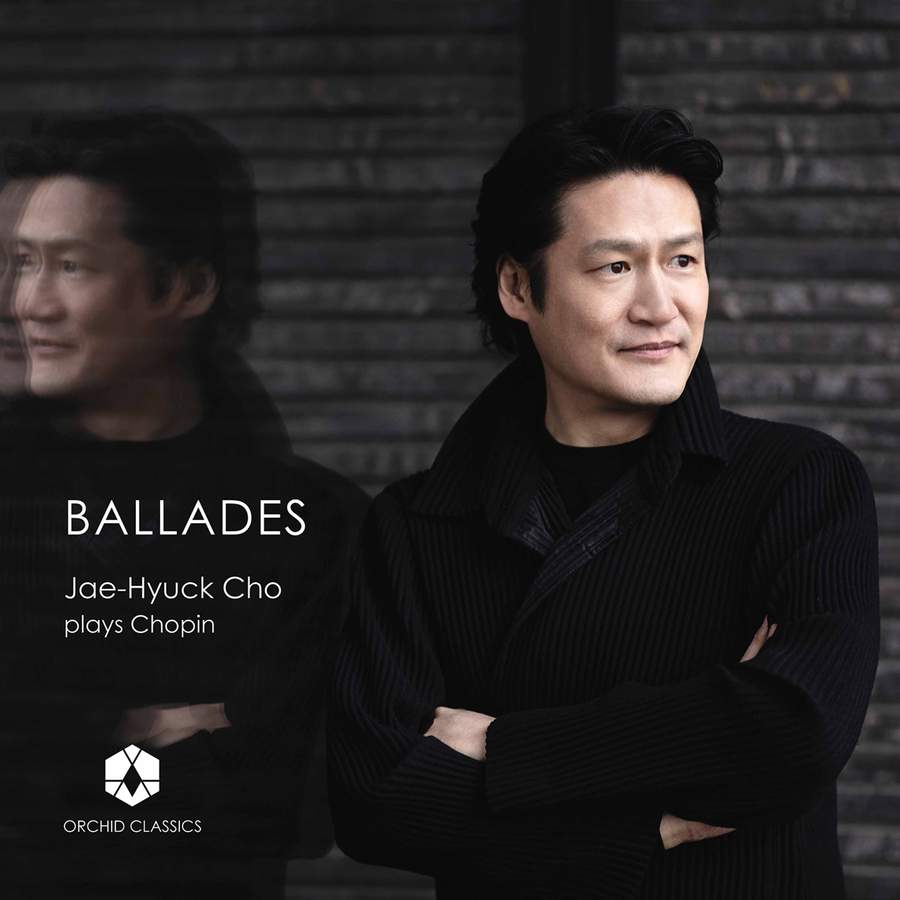CHOPIN Ballades. Piano Sonata No 3 (Jae-Hyuck Cho)
View record and artist detailsRecord and Artist Details
Genre:
Chamber
Label: Orchid Classics
Magazine Review Date: 07/2022
Media Format: CD or Download
Media Runtime: 66
Mastering:
DDD
Catalogue Number: ORC100193

Tracks:
| Composition | Artist Credit |
|---|---|
| (4) Ballades |
Fryderyk Chopin, Composer
Jae-Hyuck Cho, Piano |
| Sonata for Piano No. 3 |
Fryderyk Chopin, Composer
Jae-Hyuck Cho, Piano |
Author: Jed Distler
In his booklet notes for Chopin’s Ballades and Piano Sonata No 3, Jae-Hyuck Cho speaks of his goal to attain a genuine, singing legato on the piano. One suspects that this quest is at least partially informed by the fact that this pianist also is an accomplished organist.
Certainly his full-bodied sonority and forceful yet rounded sense of projection avoid any trace of percussiveness. The G minor First Ballade’s climaxes resonate with a strong left-hand presence, and the coda’s scales define smoothness. At the same time, there’s not much contrast in character, and the section featuring the E flat major theme frankly drags. While the F major Second Ballade’s agitated A minor episodes retain uncommon definition and never splinter or lapse into banging, Cho’s uniform articulation and square phrasing lose interest quickly. The A flat Third Ballade’s first half displays a playful, supple side of the pianist that becomes heavier and less poetic later on. In a catalogue that abounds with diversely imaginative F minor Fourth Ballade recordings from Cziffra to Rubinstein and hundreds in between, there’s simply no room for Cho’s straitjacketed and plodding opening pages or dead-accurate yet less than scintillating coda.
Somehow the B minor Third Piano Sonata can withstand Cho’s slightly Brahmsian approach, where the first-movement development’s elaborate counterpoint emerges from the bottom up, so to speak, with more than usual attention to bass lines. The same holds true in the Scherzo’s Trio, while strong left-hand underpinning helps keep the Largo moving and afloat. Cho takes the finale’s introductory bars in strict tempo, which accurately presages the forthright and uncluttered account up ahead. It lacks the nuance, the colourful dimension and the lightness of being that one has come to expect from this movement since Martha Argerich set the modern-day reference standard. In short, the best of Cho’s Chopin pianism elicits respect rather than affection from these quarters.
Discover the world's largest classical music catalogue with Presto Music.

Gramophone Digital Club
- Digital Edition
- Digital Archive
- Reviews Database
- Full website access
From £8.75 / month
Subscribe
Gramophone Full Club
- Print Edition
- Digital Edition
- Digital Archive
- Reviews Database
- Full website access
From £11.00 / month
Subscribe
If you are a library, university or other organisation that would be interested in an institutional subscription to Gramophone please click here for further information.




